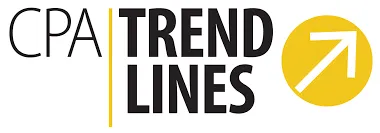Hi,
I'm Simone
I turn high-functioning chaos into regulated, scalable power.
For founders and leaders whose business has outgrown how they operate.





Hi, I'm Simone
I’m not a mindset coach. I’m not a traditional consultant.
I spent years as a CPA managing millions for massive organizations. I know the hard numbers. But I also discovered a dangerous truth: You cannot out-budget a broken psychology.
I realized that brilliant female founders didn't need another "coach" to cheer them on. They needed an Architect. Someone to bridge the gap between the hard data of the P&L and the human nervous system of the leader.
At Freedom Sun, we act as your Strategic Partners. Yes, my team will build the systems for you. But we also teach you how to drive the car. We bridge the gap between "Done-For-You" implementation and "Done-With-You" mastery so you never feel dependent or blind again.
Ways to Work Together
CEO Mentorship & Operating System
Freedom Sun® is the strategic ecosystem where coaches, consultants, and industry experts learn to operate as true CEOs — with the internal regulation, financial clarity, and systems required to build real freedom.
Advisory & Strategic Projects
Custom strategic engagements for founders and leadership teams who need targeted solutions, from sales strategy and funnel architecture to financial systems and decision infrastructure.
Speaking & Workshops
Keynotes and signature workshops that challenge how leaders think, lead, and scale, blending two decades of strategic business acumen and leadership transformation into actionable frameworks that create lasting impact.
What others are saying
"A clearer roadmap to success"
Every conversation with Simone leaves you feeling inspired and equipped with a clearer roadmap to success. Her enthusiasm is contagious, fueling you with the energy and motivation to take action. Meeting her has been a game-changer for me; she embodies the perfect blend of beauty, intelligence, kindness, and professionalism. Simone is an exceptional work companion, always ready to motivate and enlighten you on your journey! 10/10 recommend!🌟
- Sofia, Sofia 7 Oficios

"Highly recommend this"
Your knowledge and your insights on how to scale a business and simplify its processes helped me look at my services from a different perspective, allowing me to start applying my expertise into other fields where there are growing business opportunities. - Liliana

"Confident in Financial Decisions"
Simone helped me work through a critical decision for my small business, reflecting both on financial and life direction goals. She encouraged me to reflect on inner values, alignment, as well as legal and financial factors. Her wisdom and guidance is an asset to anyone taking a new direction in their small business!
- Kate, CEO Arco Preloved

Massive Change in My Businesses
Simone' helped me improve the systems in my business and get crystal clear on my business and financial plan. She asks insightful and gives you actionable tips that are tailored to our needs.
- Ally, BossaNova

Join Me in the Freedom Club
Join me for weekly insights on Sales Strategy, Financial Systems, and CEO Psychology to build a business that funds your life.
How to Land More Ideal Clients for Your Firm
Download Your Free Guide:






